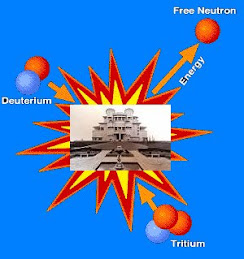Energy is at the heart of Creation. Energy supply sustains all aspects of life within our ecological world. This Brief considers why we need energy supply, the environmental dilemma, and the options. Questions are put for discussion, since the problems are complex and conclusions varied. One conclusion is that Renewable Energy must (i) urgently replace most fossil fuel use, (ii) be increasingly implemented for development, environment and sustainability. The technology, economics and politics of renewables have equal importance. Perhaps the greatest challenge is for individuals and organisations to make choices within their own responsibilities.
The importance of energy
Energy supply has immense benefit, but the sheer scale of present global demand does increasing harm, especially from pollutant emissions and other adverse environmental impact. Per capita commercial energy use in the USA is twice that in the UK, which is 50 times parts of central Africa. Resulting financial benefit and harmful emissions are in similar proportions. Is the disparity an economic imperative or inefficient greed? What is a fair allocation? In fuel poverty people die from lack of warmth; women exhaust themselves obtaining firewood, then breathe the carcinogenic smoke. Transport is essential, but what of the air pollution? Wealth and health require energy supply. Tourism and leisure squanders energy with abandon. Should I limit my excess so others with none may have some? But how can I pass my excess to others? Are there clean forms of energy supply? It is often said that such environmental challenges are ‘a moral equivalent of war’; only co-ordinated and unselfish commitment can obtain success.
![]() Discussion: Of the energy we purchase, how much is wasted through inefficiency and lack of conservation?
Discussion: Of the energy we purchase, how much is wasted through inefficiency and lack of conservation?
Nothing lives, moves, communicates, cooks, heats, manufactures or produces without a supply of energy. Energy supply is the life-blood of existence. We all have a responsibility to ensure that energy is available, without harm, for our families, our communities and our ‘global’ neighbours. Likewise governments and commerce must facilitate energy supply for the present and future sustainability of nations. We need not panic however, since ample supplies of clean energy are part of the sustainable processes within creation. If we understand how this occurs ‘naturally’, we will know how our technological life may operate now and ‘for ever’.
Life on Earth depends on the Sun; and on being 150 million km from it! The Sun’s surface temperature of 6,300 oC emits energy as visible and ‘nearly visible’ light radiation. Such radiation is ideal for initiating moderate electro-chemical processes, so enabling eyes to see and plants to grow. Also, solar radiation heats. So the Earth is kept within the range of temperature necessary for life because of the amount of sunshine and the Sun-Earth distance. Therefore an appreciation of solar energy is vital to understand sustainability and wonder at mankind’s place in ecology.
![]() Discussion: Read the label of a breakfast cereals packet to discover the energy our bodies need. Compare this with your use of electricity per day. (Clue: 1 kilowatt hour = 3,600 kilo joules = how many helpings of cereal?).
Discussion: Read the label of a breakfast cereals packet to discover the energy our bodies need. Compare this with your use of electricity per day. (Clue: 1 kilowatt hour = 3,600 kilo joules = how many helpings of cereal?).
The essential role of the Atmosphere
Control
By itself, the Earth’s surface cannot provide the controlled environment necessary for our ecology. Life would overheat beyond boiling in daytime and freeze to death at night. It is our Atmosphere that moderates the sunshine, controls that temperature regime and provides oxygen for the energy of metabolism and combustion. Moreover, the life that depends on this Atmosphere, itself maintains essential atmospheric components.
Content
Initially, over 4 billion years ago, the Earth’s atmosphere was about 99% by volume carbon dioxide (CO2), with no oxygen gas (O2). Heat emitted from the Earth’s surface as infrared radiation is absorbed by CO2, and by other molecules with 3 or more atoms, and so this initial atmosphere kept the Earth too hot for life as we know it now. Then, in the next 3 billion years, anaerobic (i.e. not requiring oxygen) microbiological life removed almost all CO2 from the Atmosphere, binding the carbon within solids and solutions. Most carbon was therefore sequestered (removed) from the Atmosphere. The previously inert atmosphere was replaced by the present active atmosphere of oxygen (19% by volume), nitrogen (80%) and certain trace gases. CO2 was drastically reduced from 99% to nearly 0.025%, sufficient however to be absorbed by plants in photosynthetic growth and to be a key component in atmospheric temperature control. This renewed atmosphere could then sustain present life, including humans, by controlling temperature, so allowing water to be liquid, providing oxygen for energy and enabling other essential functions. This situation was controlled by ecology, which constantly corrects for changes, but only within limits. It is arguable that mankind today may be causing these limits to be exceeded, so perturbing control mechanisms. For instance, in the last 150 years, fossil fuel use and forest burning has increased CO2 by 40% to a concentration of 0.035%.
Carbon removed
The removed carbon was sequestered mostly as dead plants and micro-organisms to become limestone, chalk and fossil fuels. It is essential for present life that the vast majority of ‘buried carbon’ remains out of the Atmosphere. If just 0.03% of ‘buried carbon’ is returned to remain in the atmosphere, atmospheric CO2 concentration would double, with damaging results from climate change and its control. Moreover, the combustion of fossil fuels produces pollutants other than carbon dioxide. It is clear therefore that ecological life, including humans, exists because the majority of the Earth’s carbon, including fossil fuels, was buried billions of years ago; it is equally clear that returning excess carbon to the Atmosphere at present rates (mostly by escalating fossil fuel use, but also by forest burning) is a cause of Climate Change and a disruption to present life (see JRI Brief No 2 on Global Climate Change). The natural ecological control of atmospheric gases is now unable to correct for the rapidity of mankind’s excesses.
![]() Discussion: How do we depend on plants and microbiological organisms? Are these a cause for wonder and thanksgiving?
Discussion: How do we depend on plants and microbiological organisms? Are these a cause for wonder and thanksgiving?
![]() Discussion: What are the benefits and disbenefits of utilising coal, oil and fossil gas? Have these factors changed over the last 200 years? Who really needs to use fossil fuels and how much?
Discussion: What are the benefits and disbenefits of utilising coal, oil and fossil gas? Have these factors changed over the last 200 years? Who really needs to use fossil fuels and how much?
Energy from different sources, shown for 15 European nations (bar chart)






Tidak ada komentar:
Posting Komentar